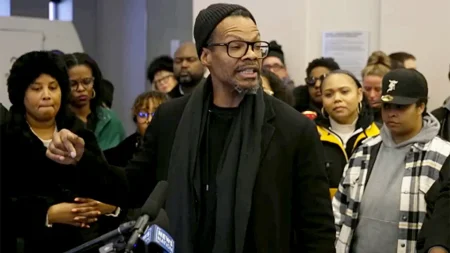Nicaragua’s Crisis Deepens: Ortega’s Inner Circle Purge Signals Growing Paranoia
Longtime Allies Now Political Prisoners as the Ortega-Murillo Family Tightens Grip on Power
In the heart of Central America, Nicaragua is witnessing an unprecedented political purge that has sent shockwaves through the nation’s already fragile democratic institutions. President Daniel Ortega and his wife, Vice President Rosario Murillo, who effectively serves as co-president, have intensified their campaign of repression by targeting an unexpected group: their own longtime loyalists and allies. This dramatic shift in strategy, according to regional political analysts, appears to be driven by an obsessive determination to consolidate power strictly within their family circle, eliminating any potential challenger—even those who have demonstrated years of unwavering loyalty to the Sandinista cause.
The wave of arrests began quietly but has accelerated in recent months, catching many observers by surprise. Former guerrilla commanders who fought alongside Ortega during the Sandinista revolution, high-ranking party officials who helped rebuild the Sandinista National Liberation Front (FSLN) during its years in opposition, and even personal friends of the presidential couple have found themselves detained, often without formal charges or access to legal representation. “What we’re witnessing is unprecedented even by Nicaraguan standards,” explains Carlos Mendoza, a Central American political scientist at the University of Costa Rica. “The Ortega-Murillo regime has systematically eliminated external opposition since the 2018 protests, but targeting their inner circle represents a new level of paranoia and authoritarianism.”
The Dynasty-Building Project: Eliminating All Potential Successors
The strategic pattern behind these arrests has become increasingly clear to both domestic and international observers: the presidential couple appears to be methodically eliminating anyone who might represent an alternative power center within the Sandinista movement. Most tellingly, those targeted often share a common characteristic—they have demonstrated leadership capabilities and built their own bases of support within the party structure. Several detained individuals were once considered potential successors to Ortega, who at 77 years old has ruled Nicaragua for more than 16 consecutive years in his second stint as president, following his initial period in power from 1979 to 1990.
The dynasty-building project has become increasingly transparent as the couple’s children have been systematically positioned in key roles throughout the government and economy. Their sons and daughters now control everything from the national oil company to television stations, while occupying unofficial but powerful advisory positions within the presidential palace. “The message is unmistakable,” says former Nicaraguan diplomat Elena Castillo, who now lives in exile. “There will be no succession planning outside the family bloodline. Anyone who might represent a viable alternative leadership option—even those who helped sustain the regime through difficult times—is now viewed as a threat.” This dynastic vision directly contradicts the revolutionary principles that originally brought the Sandinistas to power, when they overthrew the Somoza family dynasty that had ruled Nicaragua for decades with similar nepotistic practices.
From Revolutionary Promise to Authoritarian Regression
The irony of Nicaragua’s current situation is not lost on those who remember the hopeful days of the Sandinista revolution. When the FSLN overthrew dictator Anastasio Somoza in 1979, Daniel Ortega emerged as part of a collective leadership committed to social justice and democratic transformation. After losing power democratically in 1990, Ortega reinvented himself politically and returned to the presidency in 2007. His initial comeback was marked by pragmatic governance and economic stability, but a dramatic shift occurred in 2018 when massive anti-government protests were met with deadly force. Since then, Nicaragua has experienced a rapid democratic backsliding that has accelerated into the current phase of intra-party purges.
“The revolution has devoured its own children,” notes Nicaraguan historian Ricardo Blandon from his exile in Mexico. “What began as a movement against a family dynasty has transformed into something remarkably similar to what it opposed.” The systematic detention of party loyalists follows years of broader repression that has included shutting down over 3,000 non-governmental organizations, forcing independent media outlets to close or operate from exile, and compelling more than 300,000 Nicaraguans to flee their homeland since 2018. The targeting of former allies, however, represents a significant escalation that suggests deepening insecurity within the regime. Intelligence sources indicate that many of those arrested were detained after private conversations in which they questioned the wisdom of certain government policies or discussed hypothetical leadership scenarios after Ortega.
International Response and Regional Implications
The international community has struggled to formulate an effective response to Nicaragua’s deteriorating political situation. The Organization of American States has repeatedly condemned the Ortega-Murillo government’s actions, while the United States and European Union have imposed targeted sanctions against regime officials. However, these measures have failed to alter the government’s behavior and may have inadvertently accelerated its isolation and paranoia. “Sanctions alone cannot solve the Nicaraguan crisis,” argues diplomatic analyst Jennifer Ruiz of the Inter-American Dialogue. “The regime has adapted to economic pressure by deepening ties with Russia, China, and Iran, while the humanitarian costs are borne primarily by ordinary Nicaraguans.”
Nicaragua’s crisis holds significant implications for Central American stability and hemispheric migration patterns. As conditions deteriorate, more Nicaraguans are likely to join the northward migration flows toward the United States, further complicating an already challenging regional migration situation. Additionally, Nicaragua’s authoritarian turn provides a troubling model that could influence political developments in neighboring countries facing their own democratic fragilities. “What happens in Nicaragua doesn’t stay in Nicaragua,” warns former Costa Rican president Laura Chinchilla. “The Ortega-Murillo playbook—combining electoral manipulation, constitutional changes, security force loyalty, and family control of key economic sectors—creates a modern authoritarian template that other aspiring autocrats in the region might find tempting.”
Looking Forward: Nicaragua’s Uncertain Future
As Nicaragua approaches the 45th anniversary of the Sandinista revolution in July 2024, the country bears little resemblance to the hopeful vision that animated that historical moment. Instead of the participatory democracy once promised, a family-centered authoritarian system has consolidated control over virtually all aspects of national life. The arrest of longtime loyalists signals that this process of concentration has entered a new, more extreme phase focused on eliminating even the theoretical possibility of non-family succession. “The Ortega-Murillo regime is creating a political desert around itself,” observes Nicaraguan sociologist Edmundo Jarquín from exile. “By eliminating all autonomous power centers, including those within their own movement, they’ve created a system entirely dependent on family loyalty—a fragile foundation for any political structure.”
For ordinary Nicaraguans, the intensifying repression presents painful choices: silent accommodation, dangerous resistance, or exile. Many have chosen the latter, creating one of the largest displacement crises in modern Central American history. Those who remain face an increasingly unpredictable political environment where even demonstrated loyalty provides no guarantee of security. As the arrest campaign against former allies continues, Nicaragua’s path forward remains shrouded in uncertainty. What seems increasingly clear, however, is that the Ortega-Murillo family has abandoned any pretense of revolutionary idealism in favor of a naked power grab that prioritizes family control above all other considerations—including the wellbeing of the nation they claim to serve. In the process, they have transformed a revolution that once inspired global admiration into a cautionary tale about how revolutionary promises can devolve into familiar patterns of authoritarian control.







